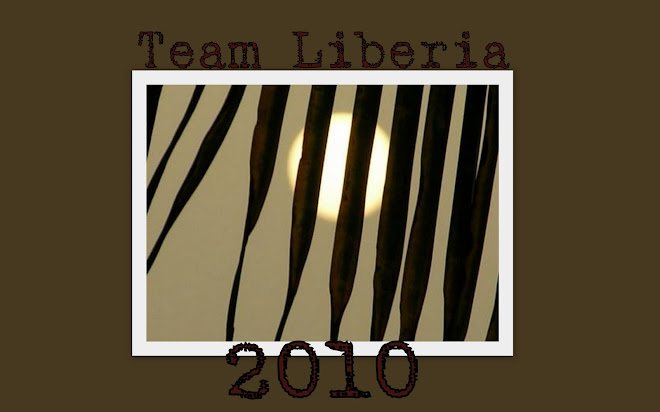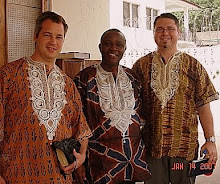But What Does the Bible Say?
 Now that the Supreme Court has issued its sweeping ruling in favor of same-sex marriage, we can expect an avalanche of commentary, analysis, and punditry. I’m not a law professor, a politician, a talk show host, or a public intellectual (whatever that is). I’m a pastor. I study and teach the Bible for a living. Which means, among all the things I may not be an expert on, I may be able to say something meaningful from the Scriptures. So as we pour over legal opinions and internet commentary, let us not forget what the Bible says.
Now that the Supreme Court has issued its sweeping ruling in favor of same-sex marriage, we can expect an avalanche of commentary, analysis, and punditry. I’m not a law professor, a politician, a talk show host, or a public intellectual (whatever that is). I’m a pastor. I study and teach the Bible for a living. Which means, among all the things I may not be an expert on, I may be able to say something meaningful from the Scriptures. So as we pour over legal opinions and internet commentary, let us not forget what the Bible says.
The Bible says the Lord alone is God and we should have no other gods before him (Ex. 20:2-3). Not the state, not the Supreme Court, not our families, not our friends, not our favorite authors, not our cultural cache. No gods but God.
The Bible says we should love our neighbors as ourselves (Matt. 22:39). And who is your neighbor deserving of such love? Wrong question, just worry about being the neighbor you’d want for yourself (Luke 10:25-37).
The Bible says love is not the same as unconditional affirmation (James 5:19-20). Love is patient and kind. It does not envy or boast. It does not rejoice in wrongdoing, but rejoices with the truth. Love bears all things, believes all things, hopes all things, endures all things. (1 Cor. 13:4-7).
The Bible says that disciples of Jesus will be hated as Jesus was hated (John 15:18-25; 2 Tim. 3:12). If the world loves us, it is not a sign of our brilliance, but that we belong to the world.
The Bible says that when reviled we should not revile in return (1 Peter 2:21-25). We should love our enemies and pray for those who persecute us (Matt. 5:44).
The Bible says Jesus came into the world to save sinners, especially the worst of sinners (1 Tim. 1:15). That means people like me, like you, and like the Apostle Paul who at one time opposed everyone and everything he later came to love and defend.
The Bible says marriage is between a man and a woman (Gen. 1:27-28; 2:18-25; Mal. 2:15; Matt. 19:4-6; Mark 10:6-9) and that homosexual practice is sin (Lev. 18:22; 20:13; Rom. 1:18-32; 1 Cor. 6:9;1 Tim. 1:10; Jude 7), but a sin from which we can be washed clean (1 Cor. 6:9-11).
Any Christian who really believes the Bible must believe all of the Bible. You can’t applaud what Jesus says about loving your neighbor from Leviticus 19, if Leviticus 18 and 20 are throwaway chapters. You can’t unpack the good news of Romans 8, if Romans 1 is overstuffed with cultural baggage. You can’t marvel at the goodness of God’s creation, if there is no good design in how he created things. Either the Bible is God’s Word or we are sufficiently godlike to determine which words stay and which words go.
The cultural breezes are blowing against us. The worldly winds are stiff in our faces. But the hard parts of the Bible are no less true for being less popular. The Bible says what it says, so let us be honest enough to say whether we think what the Bible says is right or wrong. Diarmaid MacCulloch, a decorated church historian and gay man who left the church over the issue of homosexuality, has stated the issue with refreshing candor:
This is an issue of biblical authority. Despite much well-intentioned theological fancy footwork to the contrary, it is difficult to see the Bible as expressing anything else but disapproval of homosexual activity, let alone having any conception of homosexual identity. The only alternatives are either to cleave to patterns of life and assumptions set out in the Bible, or say that in this, as in much else, the Bible is simply wrong. (The Reformation: A History, 705).
Yes, those are the only alternatives. I know books are right now being written by the dozens trying to make the case that the Bible is really keen on gay marriage, but it can’t be done. Not with exegetical and historical integrity.
Not with gospel integrity either.
A holy God sends his holy Son to die as an atoning sacrifice for unholy people so that by the power of the Holy Spirit they can live holy lives and enjoy God forever in the holy place that is the new heaven and new earth. Is this the story celebrated and sermonized in open and affirming churches? What about twenty years from now? And what if we flesh out the gospel story and include the tough bits about the exclusivity of Christ and the reality of hell? What if the story centers on Calvary, not as a generic example that love (defined in whatever we choose) wins, but as beautifully scandalous picture of a love so costly that God sent his Son into the world to be the wrath-bearing propitiation for our sins? What if the story summons us to faith and repentance? What if the story calls us to lay down everything–our ease, our desires, our family, our preferences, our sexuality, our stuff, our very selves–for the sake of the Storyteller? What if part of the story is believing that every jot and tittle in the Storybook is completely true?
I’d rather not talk about homosexuality again. But the world hasn’t stopped talking about it. And the Bible hasn’t stopped saying what it has always said. So let’s not be shrill and let’s not be silent. If you already know what the Bible says about homosexuality, don’t forget what the Bible says about all of life and godliness. We can be right about marriage and still wrong about everything else that matters. And if you like most everything else the Bible says, why would you on this matter of homosexuality decide the Bible suddenly can’t be trusted? If you won’t count the cost here, what else will you be willing to sell? The support for homosexual behavior almost always goes hand in hand with the diluting of robust, 100-proof orthodoxy, either as the cause or the effect. The spirits which cause one to go wobbly on biblical sexuality are the same spirits which befog the head and heart when it comes to the doctrine of creation, the historical accuracy of the Old Testament, the virgin birth, the miracles of Jesus, the resurrection, the second coming, the reality of hell, the plight of those who do not know Christ, the necessity of the new birth, the full inspiration and authority of the Bible, and the centrality of a bloody cross.
If Jesus is right and the Scriptures were spoken by God himself (Matt. 19:4-5) and utterly unbreakable (John 10:35), then the place to start when it comes to something as fundamental as marriage is also the place to end, and that’s by asking the question “But what does the Biblesay?” As Christians living in the midst of controversy, we must keep three things open: our heads, our hearts, and our Bibles. Don’t settle for slogans and put-downs. Don’t look to bumper stickers and Facebook avatars for ethical direction. And don’t give up on the idea that God has a clear word and a good word on this issue. God has already spoken, and he specializes in gracious reminders, so long as we stay humble, honest, and hungry for the truth. After all, man does not live by bread alone (or sex alone), but by every word that comes from the mouth of God (Deut. 8:3; Matt. 4:4).
10 Reasons Racism is Offensive to God
 How could one not be moved by the events in Charleston last week? Indeed “moved” is hardly a sufficient verb. We need words like heartbroken, appalled, grieved, outraged, and disgusted. Nine brothers and sisters murdered, and after being so kind to the killer that he almost didn’t go through with his wicked machinations. How can this happen? In America? In 2015? In a church? And inspired by the kind of racist beliefs we’d like to think don’t exist anymore?
How could one not be moved by the events in Charleston last week? Indeed “moved” is hardly a sufficient verb. We need words like heartbroken, appalled, grieved, outraged, and disgusted. Nine brothers and sisters murdered, and after being so kind to the killer that he almost didn’t go through with his wicked machinations. How can this happen? In America? In 2015? In a church? And inspired by the kind of racist beliefs we’d like to think don’t exist anymore?
But they do exist, even if (thankfully) not like the used to.
Charleston is a beautiful city and there have been beautiful gospel scenes broadcast from that city in these last days. But obviously all is not beautiful in South Carolina, just like all is not beautiful in Michigan, and all is not beautiful in the human heart.
I’ve grown up my whole life hearing that racism was wrong, that “prejudice, discrimination, or antagonism directed against someone of a different race based on the belief that one’s own race is superior” (to use one of the first definitions that popped up on my phone) is sinful. I’ve heard it from my parents, from my public school, from my church, from my college, and from my seminary. The vast majority of Americans know that racism is wrong. It’s one of the few things almost everyone agrees on. And yet, I wonder if we (I?) have spent much time considering why it’s wrong. We can easily make our “I hate racism” opinions known (and loudly), but perhaps we are just looking for moral high ground, or for pats on the back, or to win friends and influence people, or to prove we’re not like those people, or maybe we are just saying what we’ve always heard everyone say. As Christians we must think and feel deeply not just the what of the Bible but thewhy. If racism is so bad, why is it so bad?
Here are ten biblical reasons why racism is a sin and offensive to God.
1. We are all made in the image of God (Gen. 1:27). Most Christians know this and believe it, but the implications are more staggering than we might realize. The sign pictured above is not just mean, it is dehumanizing. It tried to rob Irish and Blacks of their exalted status as divine image bearers. It tried to make them no different than animals. But of course, as a white man I am no more like God in my being, no more capable of worship, no more made with a divine purpose, no more possessing of worth and deserving of dignity than any other human of any other gender, color, or ethnicity. We are more alike than we are different.
2. We are all sinners corrupted by the fall (Rom. 3:10-20; 5:12-21). Everyone made in the image of God has also had that image tainted and marred by original sin. Our anthropology is as identical as our ontology. Same image, same problem. We are more alike than we are different.
3. We are all, if believers in Jesus, one in Christ (Gal. 3:28). We see from the rest of the New Testament that justification by faith does not eradicate our gender, our vocation, or our ethnicity, but it does relativize all these things. Our first and most important identity is not male or female, American or Russian, black or white, Spanish speaker or French speaker, rich or poor, influential or obscure, but Christian. We are more alike than we are different.
4. Separating peoples was a curse from Babel (Gen. 11:7-9); bringing peoples together was a gift from Pentecost (Acts 2:5-11). The reality of Pentecost may not be possible in every community–after all, Jerusalem had all those people there because of the holy day–but if our inclination is to move in the direction of the punishment of Genesis 11 instead of the blessing of Acts 2 something is wrong.
5. Partiality is a sin (James 2:1). When we treat people unfairly, when we assume the worst about persons and peoples, when we favor one group over another, we do not reflect the God of justice nor do we honor the Christ who came to save all men.
6. Real love loves as we hope to be loved (Matt. 22:39-40). No one can honestly say that racism treats our neighbor as we would like to be treated.
7. Everyone who hates his brother is a murderer (1 John 3:15). Sadly, we can hate without realizing we hate. Hatred does not always manifest itself as implacable rage, and it does not always–or, because of God’s restraining mercy, often–translate into physical murder. But hatred is murder of the heart, because hatred looks at someone else or some other group and thinks, “I wish you weren’t around. You are what’s wrong with this world, and the world would be better without people like you.” That’s hate, which sounds an awful lot like murder.
8. Love rejoices in what is true and looks for what is best (1 Cor. 13:4-7). You can’t believe all things and hope all things when you assume the worst about people and live your life fueled by prejudice, misguided convictions, and plain old animosity.
9. Christ came to tear down walls between peoples not build them up (Eph. 2:14). This is not a saccharine promise about everyone setting doctrine aside and getting along for Jesus’s sake. Ephesians 2 and 3 are about something much deeper, much more glorious, and much more cruciform. If we who have been made in the same image, born into the world with the same problem, find the same redemption through the same faith in the same Lord, how can we not draw near to each other as members of the same family?
10. Heaven has no room for racism (Rev. 5:9-10; 7:9-12; 22:1-5). Woe to us if our vision of the good life here on earth will be completely undone by the reality of new heavens and new earth yet to come. Antagonism toward people of another color, language, or ethnic background is antagonism toward God himself and his design for eternity. Christians ought to reject racism, and do what they can to expose it and bring the gospel to bear upon it, not because we love pats on the back for our moral outrage or are desperate for restored moral authority, but because we love God and submit ourselves to the authority of his word.





No comments:
Post a Comment